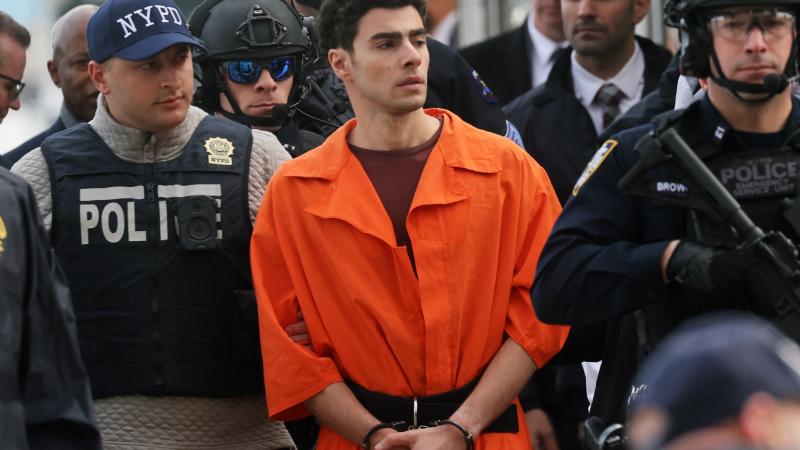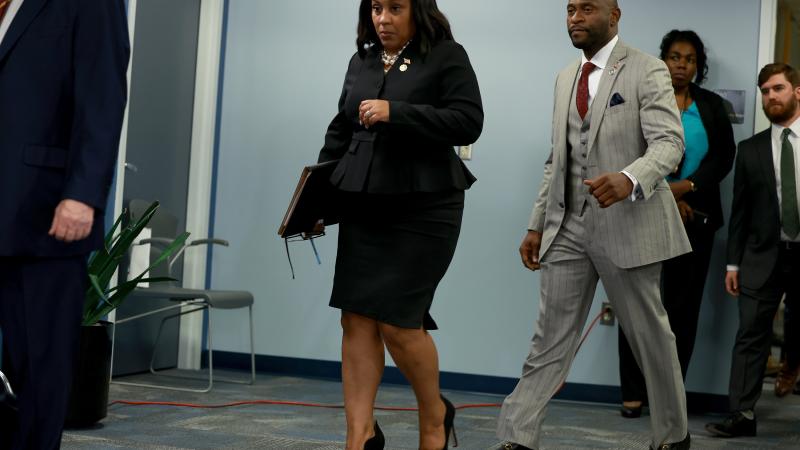Political left revives calls to pack Supreme Court following Roe reversal
Expansion of nation's highest court would compromise judicial independence, profoundly destabilize institution, experts warn.
In the wake of the Supreme Court's decision to overturn Roe v. Wade, journalists, liberal activists, and Democrats in Congress are renewing calls to increase the number of seats on the nation's highest court to achieve a liberal majority.
An expansion of the high court would mark a tectonic shift in the judiciary — one that hasn't been attempted in nearly a century. But with the Supreme Court last week striking down Roe, the 1973 ruling that established a constitutional right to an abortion, progressives have been pushing for action, especially in Congress.
"Mitch McConnell and Donald Trump stacked the court," tweeted Rep. Adam Schiff (D-Calif.), referring to the Senate confirming three Supreme Court justices when Trump was president. "It is time to unstack it — expand the court."
Schiff also said that expanding the court would "move America forward again." He's hardly alone in the House.
Rep. Alexandria Ocasio-Cortez (D-N.Y.), for example, has said it's time to "expand the court," adding that the Supreme Court "has very few checks and balances."
Rep. Pramila Jayapal (D-Wash.) expressed similar sentiments on Twitter.
Many lawmakers on the Senate side also pushed for big changes to the high court.
"I ask my colleagues in the Senate what other judicial outrage must we endure from the illegitimate, far-right majority on the Supreme Court before we act?" tweeted Sen. Ed Markey (D-Mass.). "Fight back and expand the Court now."
Fellow Massachusetts Democratic Sen. Elizabeth Warren had the same message during an appearance on ABC.
"I believe we need to get some confidence back in our court, and that means we need more justices on the United States Supreme Court," said Warren, claiming the high court "lost legitimacy" and calling on President Biden "to make abortion as available as possible with the tools he has."
Weeks earlier, before Roe was overturned, Warren and other Democratic senators sent a letter to Biden outlining several steps they believe he should take to increase access to abortions.
Calls to expand the Supreme Court weren't limited to the halls of Congress. In Georgia, Democratic gubernatorial candidate Stacey Abrams recently told CNN that "there's nothing sacrosanct about nine members on the United States Supreme Court."
Democrats hope to move on expanding the court while they still control the White House and both chambers of Congress, allowing them to tilt the Supreme Court further to the left. It's widely expected that Republicans will regain control of at least the House in this year's midterm elections, if not the Senate as well.
Nothing in the U.S. Constitution explicitly states that a certain number of justices should sit on the Supreme Court, but a national consensus has formed over decades not to tweak the current figure of nine — largely over concerns of delegitimizing the court by adding new seats for purely political reasons.
The last serous effort to expand the Supreme Court — a practice known as "court-packing" — came in 1937, when then-President Franklin Delano Roosevelt, a Democrat, was frustrated with a conservative high court rejecting components of his New Deal agenda and introduced a proposal that would have expanded the court to 15 justices.
The idea was for Roosevelt to be able to fill the court with additional left-leaning justices who would be more likely to let his proposals stand in court. But the plan was widely panned by both political parties and easily defeated in the Senate.
"It was a bonehead idea," Biden said of Roosevelt's proposal as a senator in 1983. "It was a terrible, terrible mistake to make. And it put in question, for an entire decade, the independence of the most significant body — including the Congress included in my view — in this country, the Supreme Court of the United States of America."
Biden still appears to oppose an expansion of the Supreme Court, according to White House Press Secretary Karine Jean-Pierre.
"That is something that the president does not agree with," she said last weekend. "That is not something that he wants to do."
While campaigning for president, Biden said he was "not a fan" of court-packing. Once in office, however, he established a commission to examine potential reforms to the high court, including increasing the number of justices. The commission failed to reach a consensus on steps to reform the court.
But while the president doesn't appear to back adding justices for now, that hasn't stopped journalists at mainstream media outlets from either advocating an expansion of the court or raising the idea in news stories following the decision on Roe.
Indeed, columnists at the New York Times and elsewhere have pushed the idea, while numerous other publications have published stories on the potential for implementing it.
The argument has also made its way into popular culture, with comedian Whoopi Goldberg, a cohost of ABC's "The View," even suggesting she supports court-packing.
Left-wing groups have also been vocal about expanding the court, launching a campaign to add four more justices. Leading the charge are Demand Justice, Stand Up America, Indivisible, Take Back the Court Action Fund, and the People's Parity Project.
"We know that change this big will not be easy," Stand Up America Executive Director Christina Harvey said at a press conference announcing the campaign. "We know that it will not happen overnight. But if our lawmakers want us to send them back to Washington this fall, they need to give the American people a roadmap not just for codifying Roe v. Wade but also for how they plan to stand up to this out-of-control court."
Some of the nation's most prominent liberal legal scholars, however, have been the most outspoken against court-packing.
Expanding the court "would undermine judicial independence and the rule of law by turning the Supreme Court into an unstable institution, whose membership would constantly be expanded to meet the short-term needs of the party in power," wrote Harvard Law professor emeritus Alan Dershowitz. "Packing the court to preserve a woman's right to choose also would turn that important right into a political football whose content would vary with political trends. Today a woman would have that right; tomorrow, she wouldn't — and the day after tomorrow there would be uncertainty."
Dershowitz added that an expanded court would weaken America's constitutional order and system of checks and balances.
George Washington University law professor Jonathan Turley has expressed similar concerns about increasing the number of justices on the Supreme Court. In a new column, he lambasted Democratic lawmakers for "growing attacks" on the basic legitimacy of the court, writing, "Rather than seek to moderate the mob, they are fueling the rage with such reckless rhetoric."















